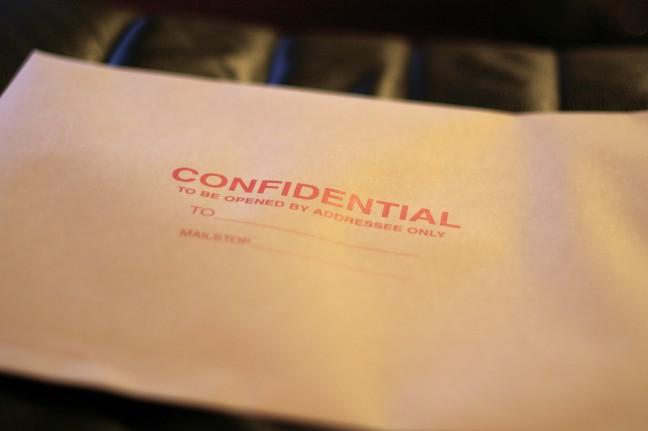A bill to increase compensation for wrongfully convicted persons and allow them to seal court criminal records has raised concerns about its potential impact on the transparency of Wisconsin’s government and justice systems.
The bill, co-sponsored by Rep. Gary Hebl, D-Sun Prairie, and Rep. Dale Kooyenga, R-Brookfield, would increase compensation for wrongfully convicted people from $5,000 per year with a cap of $25,000 to $50,000 per year with a cap of $1 million. The bill would also give those exonerated of crimes they did not commit the option to seal their court records.
Lindsey Cobbe, clinical instructor at the Wisconsin Innocence Project, said Wisconsin’s compensation statute is one of the “most insufficient” in the country and this bill would help remedy that.
But Bill Lueders, president of Wisconsin Freedom of Information Council, said it is important for the records to be publicly available for educational reasons and to help prevent wrongful convictions in the future.
A fresh start for the exonerated
Anyone in the public can access conviction records through the Wisconsin Circuit Court Access, Lueders said. In many cases, employers and educational institutions reject candidates because of their criminal records, even if the record is wrong. This limits opportunities for wrongfully convicted people, he said.
Hebl said allowing court records to be sealed would give the exonerated person a fresh start in life.
“We feel it’s only fair that [wrongfully convicted people] have as fresh a start as possible and we want to make sure they have every opportunity to go to school and become a professional in whatever career they decide,” Hebl said.
Cobbe said there are few resources available for exonerated people when they reintegrate into society. She said they often encounter obstacles when reintegrating and this bill would give them access to social services such as counseling, vocational assistance, housing assistance and access to health insurance.
Cobbe said wrongfully convicted people also lose out on earning potential and personal freedom when they are in prison, and the small sum of money currently given as compensation is not enough to make up for that.
“A lot of times exonerees come out with nothing and they really have to rebuild their lives from scratch,” Cobbe said. “No amount of money can really compensate someone for a wrong and unjust conviction.”
Making courts ‘secret’
Lueders said he was concerned with the language in the bill, which states that the wrongfully convicted person can ask for all court records to be sealed for only his or her access. He said allowing a single individual to seal and have sole access to all court records should not be allowed.
“We don’t have secret courts in Wisconsin,” Lueders said.
Lueders said it is important that such records be publicly available because they would help educate those in the justice system and law enforcement agencies about what led to the wrongful conviction. He said some records could also have evidence of serious errors in judgment or misconduct on the part of these agencies the public should be aware of.
Lueders said keeping records public would increase transparency, which is key to ensuring the wrongful conviction never happens again.
“Transparency is one of the only checks that exists on the power of prosecutors who have the ability to charge people, disrupt their lives and when they consent to the judge or jury deprive them of what they need,” Lueders said. “I think it’s important that the house puts on a brake on this [bill].”
It would be difficult to prove the police or prosecutor wrongfully convicted someone without the original records, Howard Schweber, University of Wisconsin political science professor, said in an email to The Badger Herald. Sealing records would make it difficult to claim misconduct on part of law enforcement agencies, he said.
Blemish vs. transparency
Hebl said he strongly supports open records but believes wrongful conviction creates a blemish on an innocent person’s record.
Schweber said unsealed records of wrongful conviction are accessible in public searches, but not everyone can make the distinction between convicted and unfairly convicted. This leads to a discrepancy in employment and educational opportunities for those exonerated.
“The important thing would be to craft such a rule carefully, to ensure that records would not be available to casual searches but would be open where access is important to preserve transparency,” Schweber said.
Records are available to the public until a person is exonerated for wrongful conviction. Therefore, the public can still access them for the period of time until the person is exonerated, Hebl said.
The claim that sealing records would prevent law enforcement agencies from learning about their errors is not true, Hebl said. Anyone who is wrongfully convicted would do everything to ensure it never happens to someone else regardless of whether or not the records are sealed, he said.
Legislators have been working on this bill for several years, Cobbe said, and hope to raise awareness about the needs of those exonerated.
The Senate is scheduled to discuss the bill March 15.


